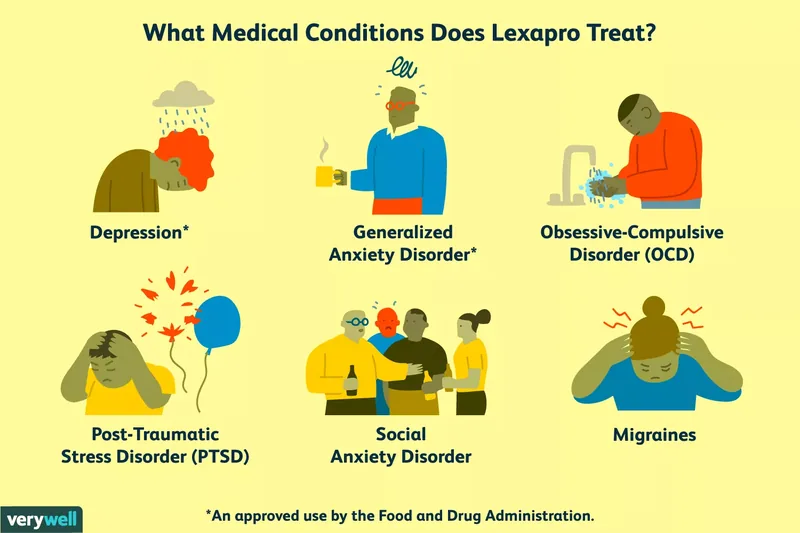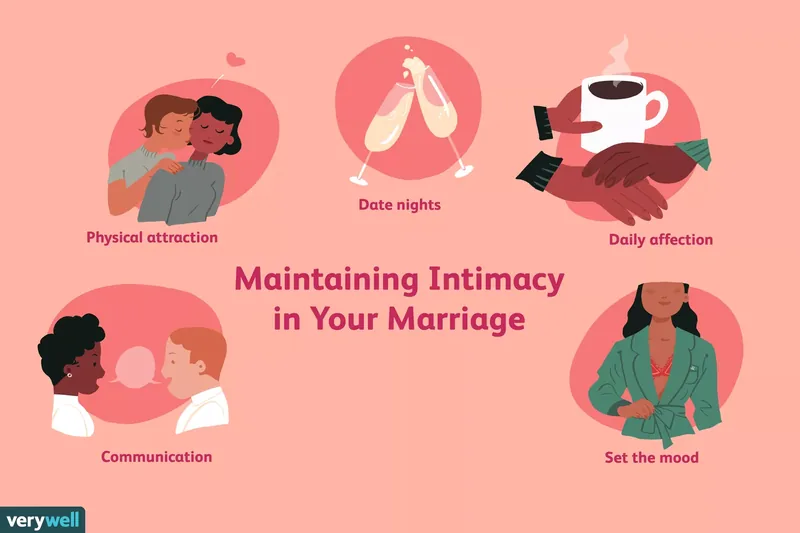It’s a common misconception that our partners should be the sole source of all emotional fulfillment. While a loving relationship undeniably enriches our lives, expecting one person to meet every single emotional need is an unrealistic burden that can strain even the strongest bonds. Many people find themselves asking, "Why my partner can't fulfill all my needs?" The truth is, emotional fulfillment primarily comes from within.
This article explores the critical distinction between shared support and sole responsibility in emotional well-being. We'll delve into why your partner can't fulfill every desire, the pitfalls of this expectation, and practical, evidence-based methods for identifying and fulfilling your own emotional needs. By understanding these dynamics, you can cultivate a more resilient relationship and personal contentment.
1. The Unrealistic Expectation: Why Your Partner Can't Fulfill Every Need
The idea that a romantic partner should be our everything, our sole source of happiness and emotional well-being, is a pervasive myth. This belief, often fueled by media and cultural narratives, sets both individuals and relationships up for disappointment. In reality, emotional needs are deeply personal and originate from within us. Clinical psychologist Willard F. Harley, Jr., PhD, describes an emotional need as "a craving that, when satisfied, leaves you with a feeling of happiness and contentment." These cravings can range from a need for affection and conversation to honesty, openness, and family commitment.
However, the very nature of emotions means that true fulfillment must also originate internally. Expecting another human being to constantly satisfy every internal craving is an impossible task. As Mark Altrogge, creator of The Blazing Center, wisely notes, "To hope that another human can meet our needs is asking too much of anyone." This isn't to diminish the vital role a partner plays in offering support, love, and companionship. Their emotional support is indeed critical. Yet, if you find your partner can't fulfill every single one of your complex emotional needs, it's not a failing of the relationship but rather a fundamental truth about human psychology.
Relying solely on another person for all emotional sustenance places an immense, unsustainable burden on them. It can lead to codependency, resentment, and a feeling of being perpetually unfulfilled. In 2025, with increasing awareness of mental health and personal boundaries, understanding this distinction is more important than ever. Your partner is a companion on your journey, not the destination for all your emotional desires.
2. Recognizing the Gaps: Signs Your Needs Aren't Met
When we consistently look to our partner to fulfill needs that are primarily our own responsibility, certain patterns and frustrations inevitably emerge. One of the clearest signs that your emotional needs are not being adequately met (either by yourself or through healthy partnership support) is a persistent feeling of unhappiness or frustration, as described by Dr. Harley. This dissatisfaction often manifests as constant criticism towards your partner, feeling emotionally drained, or a sense of loneliness even when you are together. You might find yourself constantly seeking reassurance or attention, or feeling a deep-seated resentment that your partner just "doesn't get it."
Another common indicator is a struggle to express your feelings openly and honestly without fear of judgment. When emotional needs are unmet, either partner might withdraw, leading to less shared time and a breakdown in intimate communication. For example, if your need for validation isn't addressed, you might avoid sharing achievements or vulnerabilities, fearing a lack of positive response. This creates a cycle where both partners feel less valued and validated, leading to lower levels of relationship satisfaction (Yoo et al., 2014). If you consistently feel like your partner can't fulfill the emotional depth you crave, it might be a sign to re-evaluate where that responsibility truly lies.
These unmet emotional needs can escalate disagreements, turning minor issues into major conflicts because underlying dissatisfactions are simmering. Instead of seeking mutually agreeable solutions, arguments might become battles for validation or attention. Recognizing these patterns is the first step towards a healthier approach, shifting from blaming your partner to understanding the internal landscape of your own emotional well-being.
3. Unlocking Self-Fulfillment: Identifying and Meeting Your Own Needs
Taking responsibility for your own emotional fulfillment is a powerful step towards personal growth and stronger relationships. This journey begins with clearly identifying what your emotional needs actually are. Sabrina Romanoff, PsyD, a clinical psychologist, advocates for a four-step process derived from dialectical behavior therapy (DBT), remembered by the mnemonic STOP:
- S stands for Stop: When you feel an emotional need isn't met, or you're overwhelmed, consciously stop yourself. Avoid impulsive reactions or dismissing your feelings. Freezing for a moment allows you to prevent acting without thinking, giving you crucial time to process.
- T stands for Take a Step Back: Emotional intensity can cloud judgment. Physically or mentally distance yourself from the immediate situation to calm down. Deep breathing exercises can be incredibly effective here, helping to regulate your emotions and create space for clearer thought.
- O stands for Observe: With a calmer mind, objectively look at what's happening. Who is involved? What are the facts? Avoid jumping to conclusions or assigning blame. Focus on gathering information about the situation and your internal state to understand your true needs. For example, observe if you're feeling neglected because your partner is busy, or if you're simply feeling bored and looking for external stimulation.
- P stands for Proceed Mindfully: Ask yourself crucial questions: "What do I truly need from this situation? What is my ultimate goal? What decision or behavior would improve this situation, or make it worse?" This step involves intentional action based on your observations, rather than reactive behavior.
Once you identify these needs, the next crucial step is to explore ways to fulfill them independently. This often involves recognizing your "triggers"—situations where you typically reach out to others for emotional validation, such as boredom, loneliness, or anxiety. For instance, if you often feel lonely on weekends, instead of waiting for your partner to plan something, you could proactively schedule a solo activity you enjoy, like hiking, reading in a cafe, or volunteering. By delaying the impulse to rely on others, you build internal resources. This could involve journaling your feelings, engaging in a relaxing activity like a warm bath, or pursuing a creative hobby (Harvard, 2024). Proving to yourself that you are capable of self-care in difficult moments reinforces your inner strength and reduces the immense pressure on your partner.
4. Strengthening Connection: Supporting Your Partner's Emotional Well-being
While self-fulfillment is paramount, a healthy relationship thrives on mutual support. You can absolutely help your partner meet their needs in a healthy, non-codependent manner. Dr. Romanoff emphasizes the importance of being available and responsive when your partner explicitly asks for help or support. This intentional and purposeful connection, rather than one driven by neediness or unstated expectations, significantly strengthens the relationship's foundation. It moves beyond the idea that your partner can't fulfill anything and instead fosters a dynamic of reciprocal care.
To effectively support your partner, it's essential to understand their individual wants and values. What makes them feel loved, appreciated, and seen? This could manifest in countless ways. For some, it might be an act of service, like preparing a favorite home-cooked meal after a long day, or taking care of a nagging chore like fixing a leaky faucet. For others, it might be quality time, such as planning a special date night or simply sitting together without distractions. Words of affirmation, like expressing gratitude or pride in their achievements, can also be incredibly powerful. A thoughtful gesture, even small, demonstrates that you recognize and care about their unique emotional landscape.
For example, if your partner values quality time, surprising them with a planned evening where you cook together and then watch their favorite movie shows you've considered their needs. If they appreciate acts of service, taking the initiative to clean the garage or run an errand they've been dreading can speak volumes. The specific act is less important than the underlying message: "I see you, I value you, and I am willing to put in the effort to make you feel cared for." This willingness to understand and give, without expectation of immediate return, is a cornerstone of a truly fulfilling partnership.
5. Mastering Communication: Advocating for Your Needs Effectively
Effective communication is the bridge between identifying your needs and having them acknowledged and supported within a relationship. Once you've cultivated a mindset of being a loving and giving partner, you can then advocate for your own needs. However, the approach is crucial. Psychotherapist and author Barton Goldsmith, PhD, highlights that asking your spouse to "magically meet your needs" often translates to asking them to change, which is an extremely difficult request to fulfill. Instead, directness and clarity are key. If you feel your partner can't fulfill a certain need, it might be because they simply don't know what you require.
Before communicating with your partner, ensure you are clear about your own needs. Dr. Romanoff explains that self-reflection and sitting with your emotions independently allows you to articulate exactly what you desire from your partner. This means moving beyond vague complaints like "I need more attention" to specific requests such as "I'd appreciate it if we could spend 30 minutes together each evening talking about our day, without distractions." This level of clarity helps your partner understand precisely how they can support you.
It’s usually best to communicate your needs and expectations when you are calm and not in distress. Approaching the conversation when emotions are high can lead to blaming, defensiveness, and ultimately, a breakdown in communication. Instead, choose a neutral time and place. Use "I" statements to express your feelings and needs without making your partner feel attacked. For instance, instead of "You never listen to me," try "I feel unheard when I'm sharing something important, and I need you to be present and listen without interruption." Often, what we need most is a partner who is accessible, emotionally receptive, and engaged, especially during challenging moments. Direct, calm, and specific communication fosters understanding and invites a supportive response, making it easier for your partner to step up in ways they genuinely can.
6. Cultivating a Resilient Relationship: Long-Term Strategies for Shared Fulfillment
Building a relationship where both partners feel supported and individually fulfilled is an ongoing process, not a destination. It requires a commitment to continuous self-awareness, mutual understanding, and proactive effort. One long-term strategy involves regularly checking in with each other about emotional needs, perhaps through dedicated "relationship check-ins" where you openly discuss what's working well and areas for growth. This proactive approach prevents small unmet needs from snowballing into larger resentments, and ensures neither partner feels their partner can't fulfill their fundamental requirements.
Another vital strategy is to foster a diverse support system beyond your romantic relationship (Harvard, 2024). Friends, family, mentors, community groups, and even therapists can provide different types of emotional support that a single partner cannot. For instance, a close friend might be the perfect confidant for career frustrations, while your partner excels at providing comfort during personal crises. This distributed emotional labor reduces the pressure on any one individual and enriches your life with varied perspectives and connections. It acknowledges that while your partner is central, they are not your entire emotional world.
In 2025, with the increasing demands of modern life, scheduling dedicated "connection time" becomes crucial. This isn't just about spending time together, but about intentional, quality interaction where both partners are fully present. It could be a weekly date night, a daily walk, or even just 15 minutes of uninterrupted conversation over coffee. These consistent efforts reinforce emotional bonds and create opportunities for both partners to feel valued and understood. Ultimately, a resilient relationship is one where both individuals actively work on their own fulfillment, while also consciously and compassionately supporting each other's journey, understanding the boundaries of what one person can realistically provide.
7. Frequently Asked Questions
What are emotional needs in a relationship?
Emotional needs are fundamental cravings that, when satisfied, lead to feelings of happiness and contentment, and when unmet, cause unhappiness or frustration. These include desires for affection, conversation, honesty, and feeling valued. Recognizing these needs is the first step toward personal and relational well-being.
Why is it important for partners to meet each other's emotional needs?
When partners successfully meet each other's emotional needs, it fosters a sense of security, trust, and mutual validation. This leads to more open communication, fairer conflict resolution, increased shared time, and higher overall relationship satisfaction, strengthening the bond between them.
How can I identify my own emotional needs?
You can identify your emotional needs using the STOP method: Stop when you feel overwhelmed, Take a step back to calm down, Observe what's happening around and within you, and Proceed mindfully by asking what you truly need and what actions would improve the situation.
What should I do if my partner can't fulfill all my emotional needs?
If your partner can't fulfill all your emotional needs, it's crucial to understand that this is normal. Take responsibility for your own fulfillment by identifying your needs and finding ways to meet them independently, such as through hobbies, self-care, or a diverse support network.
How can I communicate my emotional needs to my partner effectively?
Communicate your emotional needs directly and clearly, using "I" statements, and choose a calm moment for discussion. Be specific about what you need, rather than making general complaints. For example, instead of "You never pay attention," try "I feel disconnected when we don't talk, and I'd love to have 15 minutes of uninterrupted conversation each day."
Can a relationship thrive if a partner can't fulfill every need?
Yes, a relationship can absolutely thrive even if a partner can't fulfill every single need. Healthy relationships are built on mutual support, respect, and the understanding that both individuals are responsible for their own emotional well-being, while contributing to each other's happiness.











